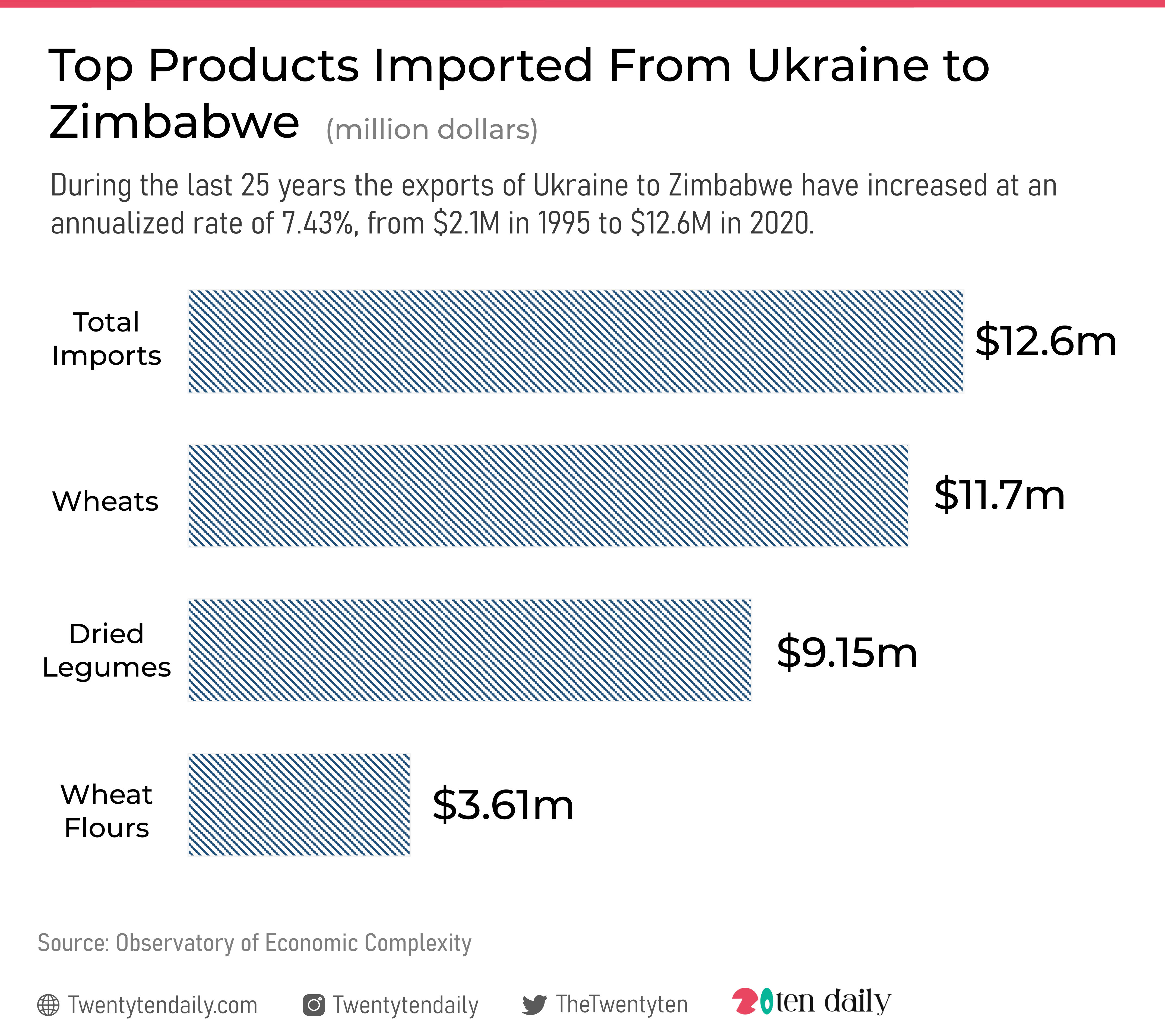How The Russian-Ukraine War Is Hurting Zimbabwe’s Struggling Economy
The ongoing conflict between Russia and Ukraine is causing a rippling effect in countries across the globe especially developing economies that depend on oil and other produce supplies from both countries.
Zimbabwe is one of those countries that heavily rely on European nations for trade and gets at least half of its wheat from Russia. But with wheat prices up nearly 15% in early March from 119,000 Zimbabwe dollars ($595) to 136,544 Zimbabwe dollars ($682) per metric tonne, residents have to pay more for bread.
The heavy sanctions imposed by the west and some of its allies on Russian oil have also affected fuel prices in Zimbabwe which have triggered a wave of price hikes of basic commodities around the country, worsening the situation for many Zimbabweans who are already grappling with widespread poverty, uncontrolled inflation due to economic mismanagement and corruption and shortages in forex.

As of last week, petrol retailed at $1.40 per litre, the second time fuel prices had risen in a week with the regulator, the Zimbabwe Energy Regulatory Authority (ZERA) citing the war in Eastern Europe as the major cause.
According to the latest trade data, Zimbabwe’s biggest import is fuel and oil, which made up 21.5% of all imports in December 2021. But with the increasing hike in the price of oil, Zimbabwe would need a huge influx of US dollars to afford the new prices or risk the availability of oil and fuel.
Economists are worried the rising cost of fuel would put serious pressure on inflation, which will lead to price increases of most commodities and escalate poverty levels in Zimbabwe.
According to the World Bank’s social and economic update, 7.9 million people in Zimbabwe fell into extreme poverty in the past decade and are currently living under the food poverty line of $29.80 per person.



